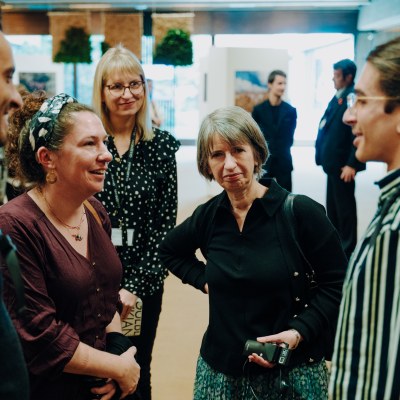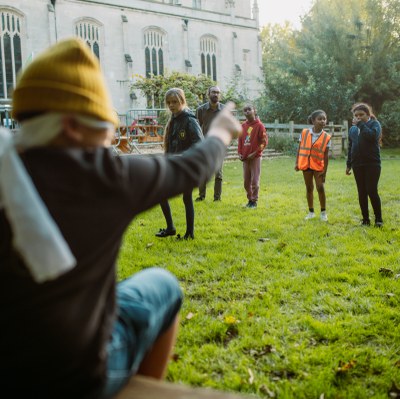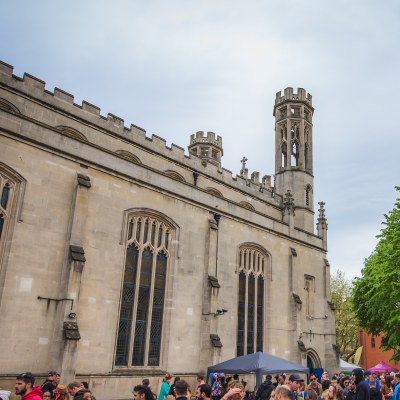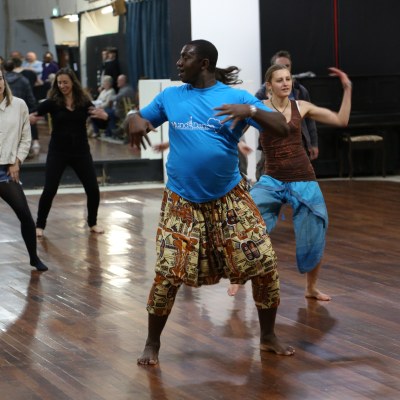Opinion:The plebs are revolting!
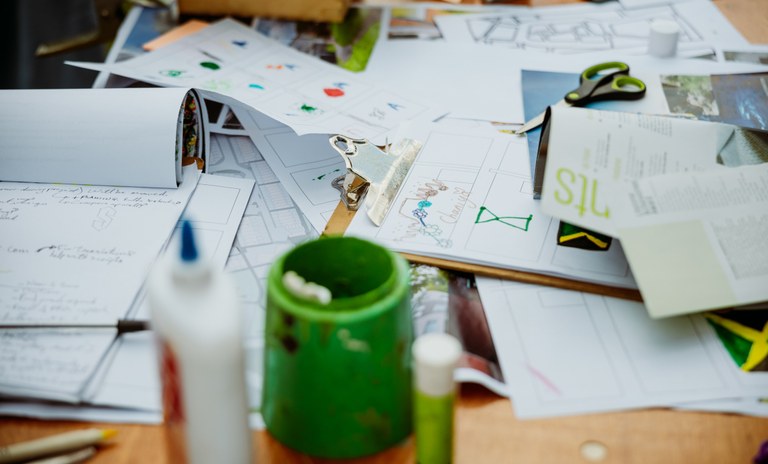
Newtown mural making, image by Alistair Brookes
Why the route to reconnecting with audiences (and voters) might include citizens assemblies
This week, the National Gallery announced their new five-year plan to embed a citizens assembly as part of their decision making structure. This was followed by Melanie McDonagh’s Evening Standard piece (swiftly edited but originally titled, I'm sorry, but plebs shouldn't be curating the National Gallery) making the case for the Gallery’s direction to continue to be decided - as it has been for the best part of two centuries - by the appointed experts who know and care about art and who know what it is they want the rest of us to engage with.
Scepticism about the unfamiliar is expected. When Citizens for Culture started with a notion to embed citizen decision making in cultural strategic thinking in The West of England Region, I was both optimistic and wary. As we embarked on a citizen-led design stage, I expected to meet a bunch of citicynics wondering why we were asking them about culture when - from cost of living to global conflict - there were bigger fish to fry. I was instead met with engaged thoughtfulness and a unique bredth of cultural perspective that reinvigorated my enthusiasm about what a citizens assembly could offer to the arts.
It is not news to anyone that our sector is in crisis. Costs have gone up whilst funding has, at best for many, remained static. With public sector investment declining as statutory obligations grow, the UK's cultural sector once again grasps for an idea of sustainability that moves ever further from reach.
People more used to getting their voices heard may want to keep things as they were, but business as usual is no longer an option. Post-pandemic visitor numbers are down as curators scratch their heads wondering why their engagement team have failed to get the bums on their seats. Decolonising themes intended to reach diverse audiences can miss the mark if they only retell old stories through old structures.
Just as our traditional two party politicking needs a rethink, so too do the structures that underpin our creative industries that - as well as many other key industries from the civil service to our judicial system - are significantly lacking in working-class representation.
Columnists with platforms may have no interest in taking part, but that sentiment is not shared. Polling of Reform voters shows replacing the House of Lords with a citizens assembly would increase their trust in politics. With visitor numbers for many cultural institutions failing to pick back up to pre-pandemic levels, ignoring us plebs is costly.
Consulting communities can miss the mark either because the right questions weren’t asked or space was not made for unexpected answers. Yes, we’re all biased and opinionated. We're also your audiences, your electorate your customers and (hopefully) your future employees. The more we cling to decision making models that don’t account for that spectrum of voice and opinion, the more we'll continue to decline.
Assemblies may not give us all the answers, but they allow for deeper conversations about who we are and how we want to be governed, washed or unwashed. In a global network of online communities and distributed narratives, they can help to covert that which is reductive and disperate into a shared course of action, that gives us at least that bit of hope to catalyse change.
This is the model pioneered by Nottingham’s New Art Exchange, which has shifted the balance of power from one that is top down to one where their citizens assembly embedded in their structural governance. Participation isn’t forced. It is paid. Assembly members aren’t expected to replace the expertise of staff. They’re there to bring relevancy and meaning, with a board that continues to govern risk and a creative, curatorial crew who bring their relevant skills and specialisms to convert, elevate and actualise ideas. Artistic expertise isn’t being superseded, it's being enhanced through the power of that collective lens.
The UK’s spectrum of heritage, identity and opinion is so broad, the idea that any one person could curate that in isolation is for the dinosaurs. Deciding together might feel messy but, as the models we know are failing us, assemblies give us a way to realise a kaleidoscope of possibility. We have an opportunity to start that decision making process from a different point, even if we’re not sure where we might end up. Will citizens assemblies solve our problems? I don’t know. I do know in an era of decentralised content and political discontent we are both our own curators and our best advocates.
We ignore that at our peril.
This is a personal opinion piece by Emma Harvey




